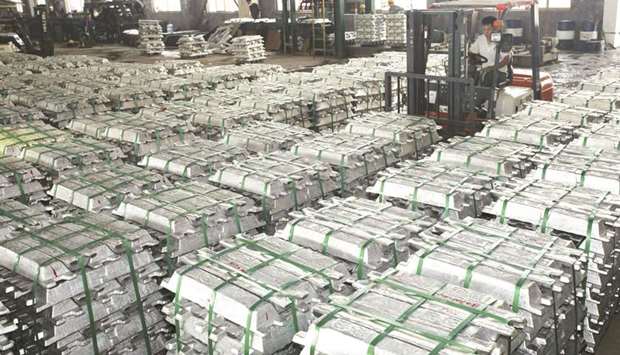The US said it would seek to impose duties on imports of aluminium foil from China, arguing that state subsidies for the domestic industry unfairly disadvantage American producers.
US Secretary of Commerce Wilbur Ross announced the “affirmative preliminary determination” late Tuesday in Washington following an investigation into the practices of Chinese makers of the material. Subsidies of as much as 81% were found to be in place, according to a fact sheet released on the department’s website.
If carried through, the duties could ratchet up trade tension between the world’s two largest economies, as efforts by President Trump and his Chinese counterpart to begin shrinking the US trade deficit have borne little fruit. Trump has floated the prospect of a formal investigation into China’s alleged intellectual property abuse and threatened tariffs on steel.
“The US is committed to free, fair and reciprocal trade, and will continue to validate the information provided to us that brought us to this decision,” Ross said in the statement. “The Trump Administration will not stand idly by as harmful trade practices from foreign nations attempt to take advantage of our essential industries, workers, and businesses.”
The decision is still to be confirmed by a final department ruling by October and a determination by the US International Trade Commission. US Customs and Border Protection will be instructed to collect cash deposits based on the preliminary rates for aluminium foil being imported.
“Aluminium has become a hot spot in China-US trade in recent years, as Chinese output of aluminium products has surged a lot, and its exports increased very fast, which has raised eyebrows from trading partners,” said Yang Rongzhen, a professor at the China Institute for WTO Studies at the University of International Business and Economics in Beijing. “This is just one of several cases the US has launched, but it is still within the normal trade frictions. I wouldn’t say this is a trade war.”
Five companies were singled out in the report, which found effective subsidy rates ranging from 16.56% in the case of Jiangsu Zhongji Lamination Materials Co and 28.33% with Dingsheng Aluminum Industries Trading Co, to 80.97% at Loften Aluminium, Manakin Industries and Suzhou Manakin Aluminum Processing Technology Co.
Chen Hong, founder of Suzhou Manakin in Jiangsu province, said by phone he’s disappointed with the findings and is talking with US lawyers about his options, adding that he’s not optimistic the decision can be overturned. If levied, the duties would hurt the US packaging industry and costs would be passed on to US consumers, he said.
An employee who answered the phone at Dingsheng Aluminum said executives weren’t available and that she couldn’t comment on the issue. Zhongji Lamination, Loften Aluminium and Manakin Industries didn’t respond to requests for comment or weren’t reachable.
“Trade frictions between China and the US have been frequent, and will remain in the future,” said He Weiwen, a senior fellow at the Centre for China and Globalisation in Beijing and a former economic and commercial counsellor at Chinese consulates in New York and San Francisco. “But there’s still not a full-fledged trade war. The spats over specific products, however, are going to be represented in more complicated ways.”

A worker drives a forklift to transport aluminium bars at a factory in China. The US said it would seek to impose duties on imports of aluminium foil from China, arguing that state subsidies for the domestic industry unfairly disadvantage American producers.
